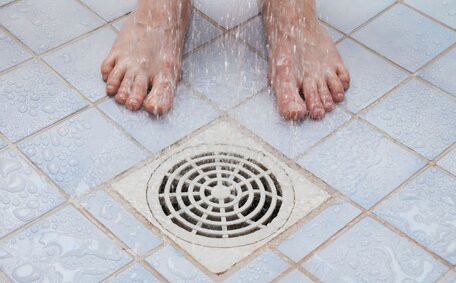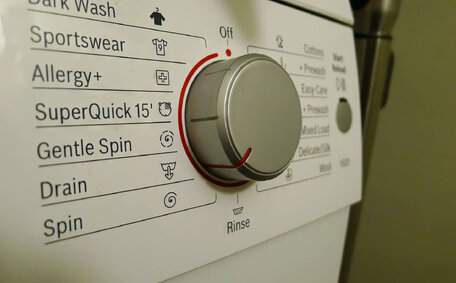
Baking Soda & Vinegar for Cleaning
Using baking soda & vinegar separately for cleaning is very effective; but mixing them dilutes their cleaning power. Learn how to use them properly.
Read MoreSmart hot water tank systems are the latest innovation bringing convenience and efficiency to modern homes. By connecting to your home’s Wi-Fi network, these heaters can provide expert management of your usage patterns and leverage data to optimise water heating. This enables the system to turn water heater off when not in use, saving energy compared to traditional models.
Key benefits of smart water heaters come into play when need for efficiency and management is prioritised:
Rather than heating a tank of water around the clock, smart systems, which can be programmed according to your electricity tariff, use just enough energy to meet your hot water needs and ease your monthly energy expenditure. This optimised performance can reduce your energy bills by minimising waste and leading to substantial savings over time, supplying hot water precisely when needed without sacrificing comfort or performance.
While smart water heater technology may seem complex, quality models with an integrated water tank are designed for easy installation and can program seamlessly into your home. With a smart system’s remote monitoring and control capabilities, accessing hot water becomes more convenient while conserving energy, especially when you can turn your heater on or off remotely.
For a hot water system to work with smart home devices, there are a few key compatibility factors to consider:
The hot water system, particularly if it’s several years old, will need to have inbuilt Wi-Fi and app control capabilities to connect to your home’s wireless network. Many modern systems include this, but older units may need an add-on module or replacement to enable smart functionality.
Popular smart home platforms like Google Home/Assistant, Amazon Alexa, Apple HomeKit, SmartThings and more have varying degrees of compatibility. Check that your preferred system supports hot water heater integration before purchasing.
Some brands like Rheem, Rinnai, Bosch and Noritz have their own apps and modules that allow monitoring and control of their hot water units specifically. If you have one of these heaters, the proprietary integration product can provide more advanced functionality.
Google Nest thermostats have the ability to turn water heater systems off through the Works With Nest programme. This feature can turn off your hot water systems automatically, adjusting usage based on your schedule and behaviours for greater efficiency.
When connecting your hot water to smart home tech, also check details like the age of your unit, wiring specifics and tank size/type. Consulting with your local plumber to check your system can help overcome any compatibility issues with water tanks and get it fully integrated.
Smart water heaters connect to home WiFi networks, enabling control and monitoring through mobile apps and web dashboards. This remote connectivity via the internet allows you to adjust settings, view usage data, and receive alerts from anywhere.
Most major brands like Rheem, Rinnai and Noritz offer options where you can choose their own apps that pair with smart control modules installed on compatible units, sometimes including an electric booster to water your system with additional heat. Popular smart home platforms like Google Home, Amazon Alexa, Apple HomeKit and SmartThings also have integration capabilities to voice control hot water.
One example is the Aquanta Smart Water Controller, an add-on module enhancing both electric and gas systems, as well as existing solar water heater systems.
The device provides app-based remote control, leak detection alerts, usage tracking and works with Nest and Alexa. Upgrade your units like this can bring wireless connectivity to your existing electric water heaters, fully integrating with smart homes without a full system replacement.
By linking your hot water tanks’ capabilities to home automation and monitoring systems, you can take advantage of enhanced convenience, safety, and home energy efficiency. WiFi connectivity and remote access are key to unlocking the benefits of smart water heating technology.
Remote control and smart switch scheduling of hot water allows for convenient management every day through mobile apps and online dashboards. This feature lets you make your adjustments to settings, view usage statistics, and optimise delivery for energy efficiency each day.
Most Smart water heaters come with intuitive apps that guide you to supply hot water through the setup process when using your connectivity and remote access features. Typical steps involve:
Completing these app-based configuration steps takes around 5-10 minutes. You can then control heating remotely based on routines, track usage over time, receive leak alerts anywhere, and more.
Unlike basic thermostats that maintain a fixed temperature, smart controls adapt as the system can intelligently match the heating system to demand. This provides:
While smart controls require a WiFi-enabled heater, the benefits of remote access, automation and demand-based heating make them a worthy upgrade over basic thermostats.
Heat pump water heaters offer a highly efficient way to heat water by extracting and repurposing heat from the surrounding air. This approach can save a significant amount in energy costs, making them more eco-friendly and cost-effective than conventional electric storage heaters that keep water hot during the day.
Instead of generating heat through a conventional heating element, heat pump units enhanced with solar PV use a refrigeration cycle to absorb surrounding thermal energy. A compressor can provide elevation of this scavenged heat to optimal temperatures, efficiently heating water for daily use.
Typical savings from systems use compared to traditional electric hot water heaters are:
Because heat air is free and unlimited, heat pumps provide hot water at a fraction of running costs. They work best in warmer climates but advancements in low-ambient technology allow efficient operation across most areas.
Solar hot water heater solutions, including heat pump water heaters, perfectly complement rooftop solar panels, integrating seamlessly into your solar setup. During sunny weather when your power system overproduces, you can use excess solar power to energise the heat pump to heat stored water. This enables beneficial use of solar energy that would otherwise go to waste.
With intelligent integration capabilities, advanced heat pump water heaters maximise savings while sustaining comfort levels through smart scheduling and control automation.
Smart water heaters can give you advanced functionality compared to standard models. By connecting to home WiFi networks, they enable remote monitoring and control, Ensuring you save your hot water, even though they constantly optimise usage through intelligent scheduling.
Key advantages of smart systems can include:
Some smart systems like the Aquanta controller, compatible with Nest Learning technology, can also detect leaks and share data with Google Home/Assistant. By self-learning usage habits, they optimally heat just enough of your electric hot water to match demand, allowing homeowners to take advantage of precise temperature control.
While electric water heater models with smart technology are more expensive upfront, their advanced automation, safety and energy optimisation capabilities offer convenience and peace of mind
Some common connection and configuration issues that may arise when linking a smart water heater to your home automation system include:
Check the WiFi signal strength at your hot water system. Weak or unstable connections can cause syncing failures. Try moving your router closer or installing WiFi extenders if signal drops out.
Ensure your smart water heater model and home automation platform have integration capabilities. For example, Google Nest thermostats directly work with specific heat pump units under the 'Works with Nest’ scheme.
Smart water heater mobile apps and controller modules periodically receive software patches which can sometimes cause temporary connection issues until systems are updated. Check for any pending firmware updates.
As with many smart home devices, simply restarting the smart hot water module/app, your home automation hub, and router can often resolve basic connectivity problems.
Correctly integrating your water heating with precise water temperature controls into wider smart home ecosystems requires getting the right components and proper setup guidance. Consult a technician if your new home faces ongoing connection troubles - the potential energy and cost savings of smart water heaters are significant when integrated properly.
Regular maintenance is vital for smart water heaters to ensure water energy efficiency and durability over time use. Here are some useful tips:
Check for leaks, corrosion, weird noises or other issues during annual servicing. This can still prevent serious problems down the track.
Ensure the area surrounding your water heater smart unit has no obstacles that might take up space and block air flow. Plants, boxes or bushes too close can reduce performance.
Smart pump water heater units tasked with efficient water heat in quiet indoor areas like bedrooms can sometimes seem noisy. Have a technician check decibel levels if bothersome.
Check the app or online dashboard regularly and install new smart module firmware when available. Updates improve connectivity and fix bugs.
Heat pump water heaters cost less than traditional models to operate when installed in open, well-ventilated utility areas. This optimises airflow for better efficiency.
Following these basic maintenance tips keeps your smart hot water system working reliably for longer and helps save energy, maximising operational savings.
Selecting the most suitable smart water heater involves weighing up key factors like:
Consider the number of bedrooms and bathrooms in need of a hot water supply; larger or new homes require bigger units or multiple systems.
Analyse your household’s typical hot water usage patterns. Smart heaters with larger tank capacities or faster heating may suit high-demand households.
Check compatibility with your current smart home platform and consider whether you need a full system replacement or just an upgrade for your hot water tank.
Compare the types of hot water systems like solar, heat pump, or gas models offer, and how much efficiency each provides based on your sustainability goals.
It’s also worthwhile consulting professionals like Lilyfield Plumbing’s experts to receive personalised advice matched to your home’s specific requirements.
Carefully weighing these key factors and seeking guidance from tradespeople ensures your new smart hot water heater reliably and efficiently caters to your household’s needs.
Using baking soda & vinegar separately for cleaning is very effective; but mixing them dilutes their cleaning power. Learn how to use them properly.
Read MoreBlocked drains are usually caused by buildup of hair, grease, debris and more in your pipes. Fix the problem with professional drain unblocking services to get your drains flowing freely again. Contact us for affordable drain unblocking.
Read MoreWhen you suspect a gas leak or damaged gas line, contact a licensed gas fitter immediately to locate and repair it. A gas line repair involves sealing leaks, replacing corroded or damaged pipes and testing all connections for safety before restoring gas supply.
Read MoreLilyfield, 2040 NSW
We will call back as soon as possible.




